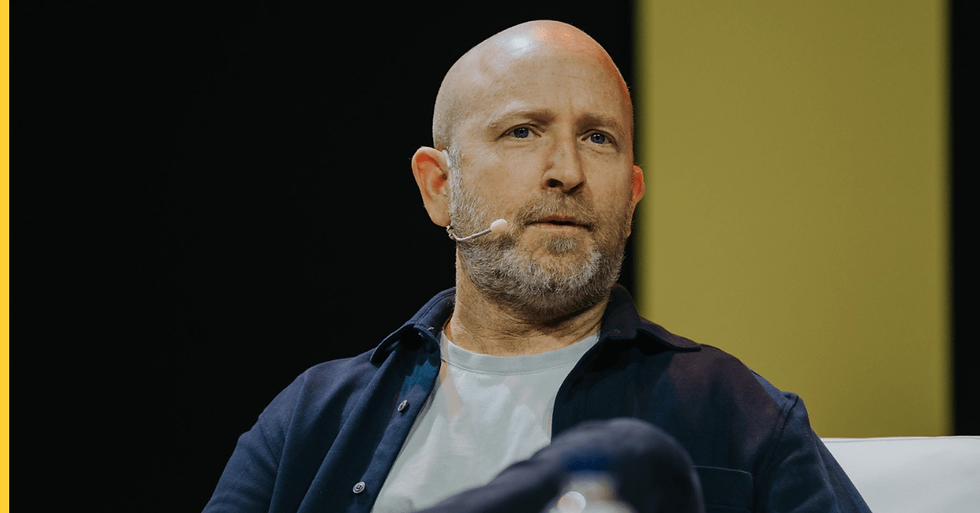Why Leading Grey Zone Operators Are Moving Towards Regulation
- itaipazner
- Oct 26, 2025
- 3 min read

By Itai Pazner, Consultant & Former CEO of 888 Holdings
Look, the iGaming industry's been going through some wild changes lately. Crypto casinos, sweepstakes, prediction markets - all this stuff has basically forced regulators to wake up and figure out what the hell they're doing with gaming laws.
Here's the thing about our industry: we've always been disruptors. Remember online poker in the early 2000s? Daily fantasy sports before PASPA got repealed? They all started in this weird grey area where nobody really knew if it was legal or not. Crypto casinos? Same story. They showed up on the fringes, took massive risks, grew like crazy, and now they're making billions.
But something's changing. We're watching these operators slowly (and painfully) crawl into regulated markets.
From Disruption to Regulation
You can see it happening right now. Yolo Group just shut down Sportsbet.io and Bitcasino.io - their biggest sites - to focus on regulated markets instead. Stake's using all those celebrity partnerships and sponsorships to buy their way into licensed territories. And get this - even 1xBet, which basically built its entire brand on operating wherever it wanted, is now talking about player protection.
I've been around long enough to see this pattern before. Every single major operator today - 888, PokerStars, bet365 - they all started in unregulated markets. That's just how it works. Then governments introduce licensing and you've got two choices. Adapt or die.
The Evolution of Risk
Crypto casinos took everything to a whole new level though.
Traditional online casinos might let you bet $10,000 if you're a high roller. Crypto casinos? They're processing hundreds of thousands in Bitcoin or Ethereum. No KYC. No AML checks. Nobody asking where your money came from. Just pure, unfiltered gambling.
Now imagine trying to go from that to a world where you need affordability checks and deposit limits for everything. It's not just tweaking a few things here and there - you're basically rebuilding your entire business. Bonuses drop from 70% to 20%. Your margins completely change. That frictionless experience players love? Gone. The whole economic model gets turned upside down.
Why Do It at All?
Simple. Because sustainability beats speed every time.
These founders built billion-dollar companies in grey markets, sure. But eventually you hit a wall. Cease-and-desist orders start piling up. Legal risks get too big to ignore. Countries start blocking you left and right.
The math changes. Short-term profits don't look so attractive when you're facing potential jail time or can't operate in half the world anymore.
Plus - and this is key - they've got the money now. All those profits from the unregulated years? That's their war chest for going legit. They can actually afford proper compliance teams, regulatory consultants, global marketing campaigns. The whole nine yards.
Where Crypto Operators Have an Edge
Here's what's interesting though. These crypto operators aren't just copying traditional casinos. They're actually bringing something new to the table.
Their platforms are built for people who grew up online. Modern, social, engaging. They had crash games years before anyone else knew what they were. Live streaming integration? Community features? They were doing all this while traditional operators were still figuring out mobile apps.
If they can take all that innovation and combine it with proper responsible gaming tools and regulatory compliance? That's actually pretty powerful. Younger players already think traditional casinos feel outdated. These guys could capture that market.
And don't underestimate their brand power either. Stake became a household name through Drake partnerships and massive sponsorships. You can't buy that kind of recognition easily. When they enter a new regulated market, people already know who they are. That's huge.
The Road Ahead
Crypto gaming's basically where online poker was twenty years ago. Standing at the crossroads between the wild west and legitimate business.
The transition's gonna be messy. Some operators won't make it. Others will struggle with the culture change - going from "move fast and break things" to "wait for regulatory approval" isn't easy.
But for those who figure it out? Who can keep the innovation and energy of crypto while adding the trust and safety of regulation? The opportunity's massive. Absolutely massive.
This industry's reinventing itself. Again. And honestly? That's what we do best.
Written by Itai Pazner
Consultant & Former CEO of 888 Holdings




Comments